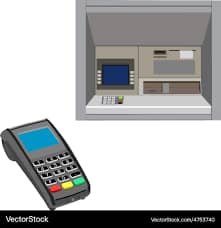
Olusegun Adeyemo
The Point of Sale (POS) system, formally introduced to Nigeria in 2012 by the Central Bank of Nigeria (CBN) under its cashless policy initiative, has grown to become one of the most dominant payment channels in the country.
Designed to reduce dependence on cash transactions, deepen financial inclusion, and promote electronic payments, the system was rolled out through commercial banks in partnership with licensed agents and fintech companies. Within a year, POS usage had expanded beyond supermarkets and petrol stations to independent “POS agents,” who now serve as mini-banks in both towns and rural communities.
Today, POS terminals have become an integral part of Nigeria’s financial ecosystem, overshadowing traditional Automated Teller Machines (ATMs) in both usage and visibility. According to data, as of March 2024, Nigeria had over 2.7 million deployed POS terminals, compared to fewer than 21,500 ATMs, despite servicing more than 63 million unique bank clients.
Bank officials admit that many ATMs remain underutilised, with some describing a “cold war” between banks and POS agents, who are often regarded as “human ATMs.” While agents have successfully bridged gaps left by banking institutions, their services often come at a steep cost to consumers, sparking concerns over charges and accessibility.
Several issues continue to plague the ATM network, including low withdrawal limits — sometimes as little as ₦5,000–₦10,000 per transaction — which frustrates customers and forces them to seek alternatives.
In separate interviews with The Journal Nigeria, residents shared reasons for abandoning ATMs for POS outlets.
“In the last five years, the only time I touched an ATM was when I renewed my card and had to change my PIN. Since then, I just walk past ATMs and head to POS shops,” said Kelvin Ola.
Sunday Omonuwa admitted he had almost forgotten ATMs still exist: “I just remembered ATM machines are still in Nigeria. But how much do I even get from them?”
For Osor Som Chisom Jr, the shift has been so complete that when he recently got a new card, he struggled to operate the ATM after years of relying on POS agents.
Others, like Juliet Bright, confessed that security guards now have to guide them at ATMs because they barely remember how to use them.
Some, like Catherine Masoyi, said mobile transfers combined with POS services have virtually erased the need for ATMs since 2023. Tessy Williams jokingly added: “You mean Automated Teller Machine Machine? I can’t remember actually, maybe four to five years ago.”
The rising dependence on POS underscores the transformation of Nigeria’s financial landscape. While the system has expanded financial access, stakeholders warn that unchecked service charges and the decline of ATM relevance could pose fresh challenges in sustaining a fair and inclusive cashless economy.
